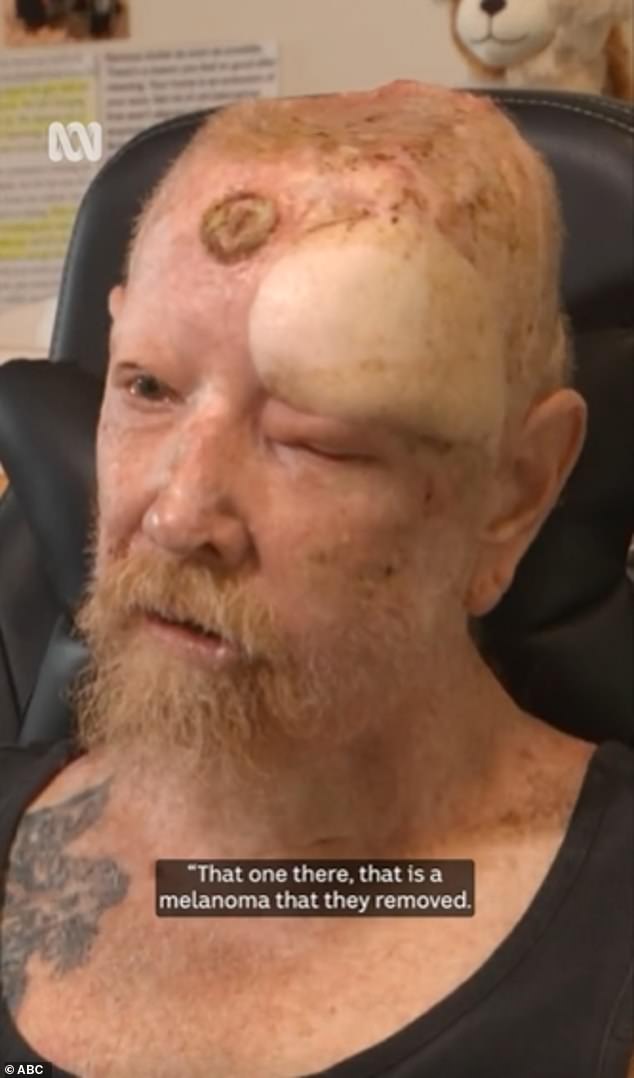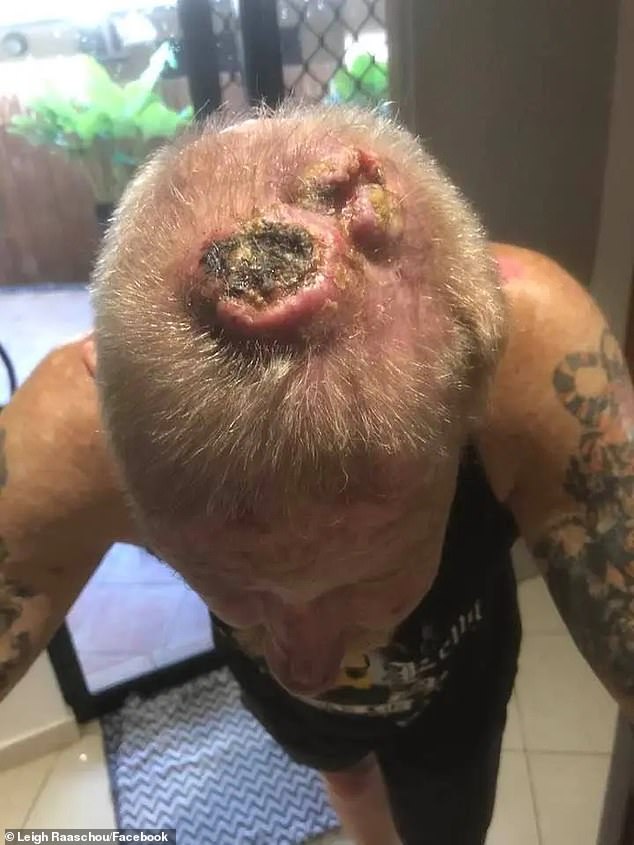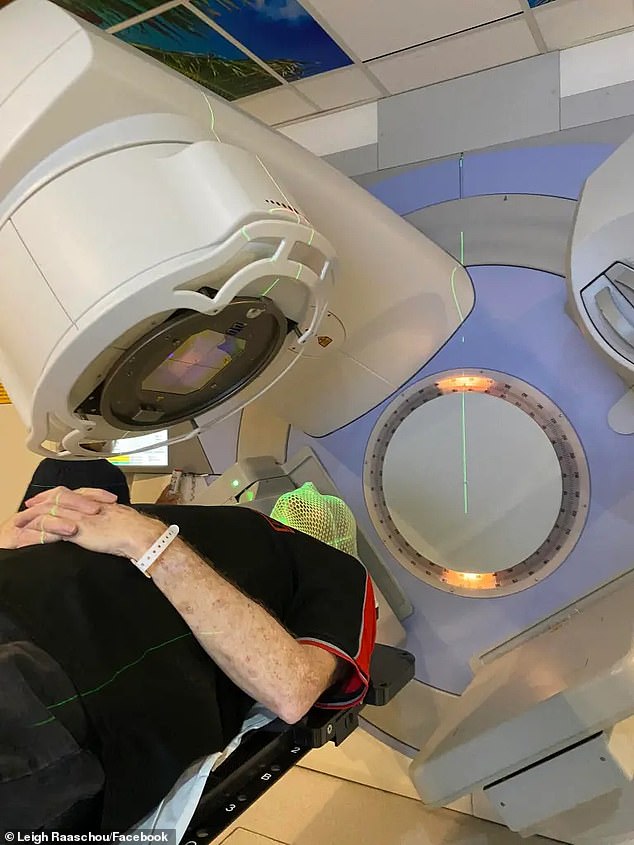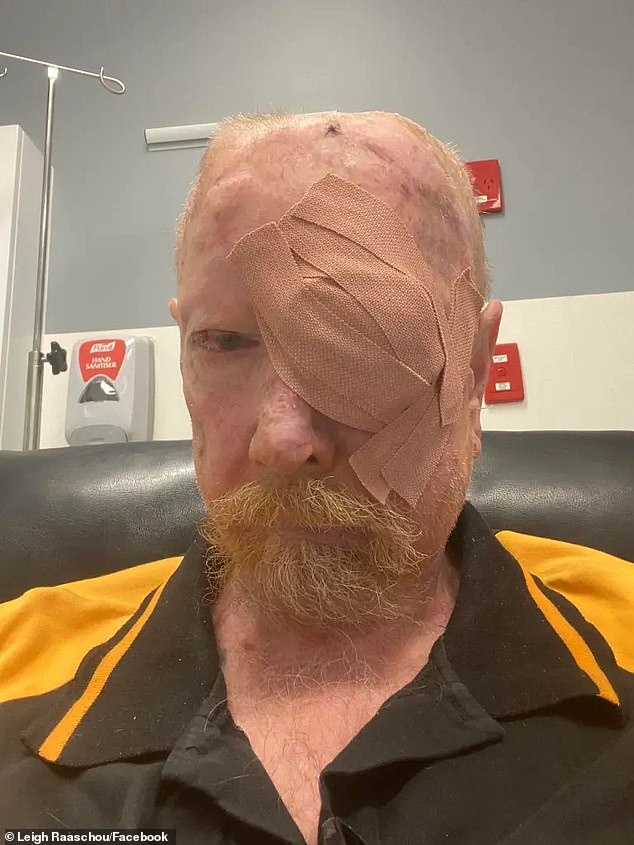The shocking photos that show the result of never wearing sunscreen or a hat – as skin cancer victim issues a warning to every Aussie
An Australian man who has spent most of his life working outside without wearing a hat or sunscreen has issued a warning that he wants everyone to take seriously.
Leigh Raaschou was a volunteer junior lifesaver in Victoria and spent countless hours in the sun, surgically removing almost 200 skin cancers from his skin.
“As you can see from the skin grafts and things like that I’ve had, I would have had well over a hundred skin cancers at that time, probably closer to 200,” he recently told the newspaper. ABC.
Last year he had his fourth melanoma removed since 1998, the most aggressive and dangerous of all skin cancers.
“The cancer was in my bone and they had to take my skull out and put a titanium plate in it,” he told the broadcaster.
‘Unfortunately I got an infection between the plate and my brain, and I had to go back in to remove it.
“But because of the high risk of me being cut open, or bleeding in the brain and things like that, they decided they’re not going to put it back in.”
“I’ve had radiation in all parts of my head, and the doctors have said there’s none left.”
He has also undergone numerous bouts of chemotherapy, which has left him with impaired vision and hearing.
Leigh Raaschou (pictured) has revealed the horror of spending years in the sun without the right protection

Nearly 200 skin cancers have been removed from his body, four of them melanomas, leading to chemotherapy and numerous surgeries on his skull.

He lost parts of his skull due to the cancer
The treatment applied to ‘every area’ of Mr Raaschou’s head effectively eradicated all existing tumors.
But this does not guarantee that the melanoma will not occur again in the future, which his wife worries about.
“Everything is one day at a time, one foot in front of the other,” he told the ABC, explaining his view on the future of his health.
“If you can’t solve it yourself, there’s no point in worrying about it because you’ll get sick, and I refuse to do that.”
Mr Raaschou spoke about groundbreaking research from Charles Darwin University, and RMIT found that a cannabis extract has shown positive results in slowing the growth of melanoma cells.
Melanoma is known for its aggressive nature, often spreading rapidly and proving resistant to conventional treatments.
According to Nazim Nassar, co-author of the study, the PHEC-66 extract also increases cell death.
However, the treatment is a long way from being used in humans as researchers test its safety and delivery methods.
“Before we test this on humans, we need to do animal testing, we need to make sure these products are safe and effective,” Dr. Nassar to the ABC.
“And more importantly, we need to find a way to deliver (PHEC-66) directly to the cell.

Mr Raaschou has had almost every part of his head irradiated

Photos of Mr Raaschou show that he is covered in scars and spots as a result of skin cancer
“We’re probably looking at something topical or subcutaneous under the skin that will deliver the drug directly to the target cells.”
Australia has the highest skin cancer rate in the world. More than 11,500 Aussies are diagnosed with melanoma each year, while an estimated 434,000 people undergo treatment for non-melanoma skin cancer.
About 2,000 Australians die from skin cancer every year
